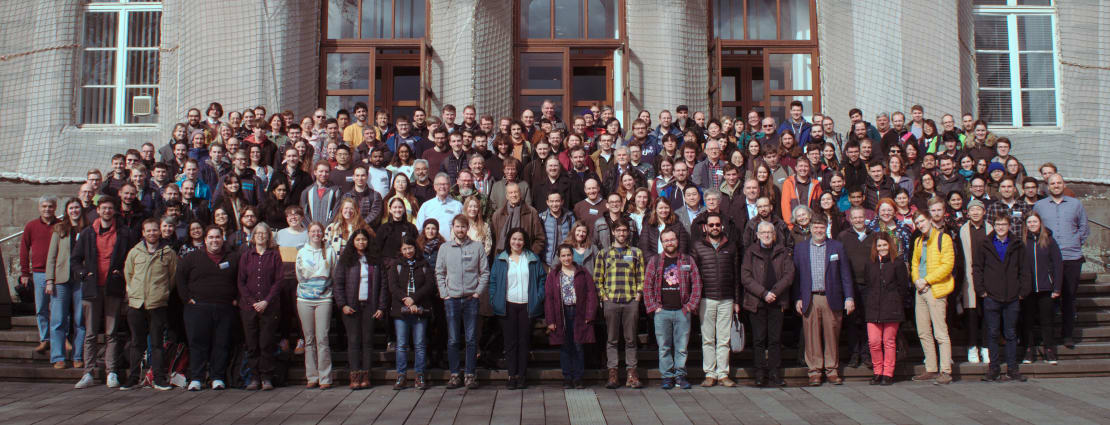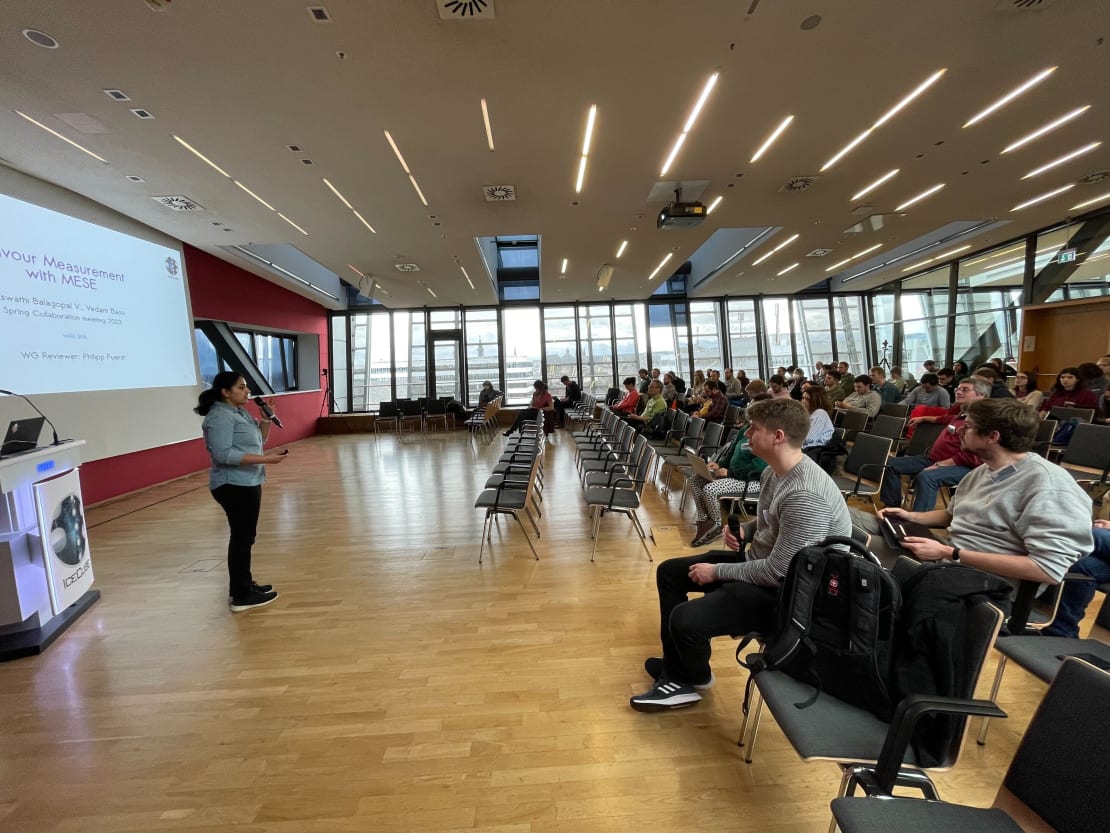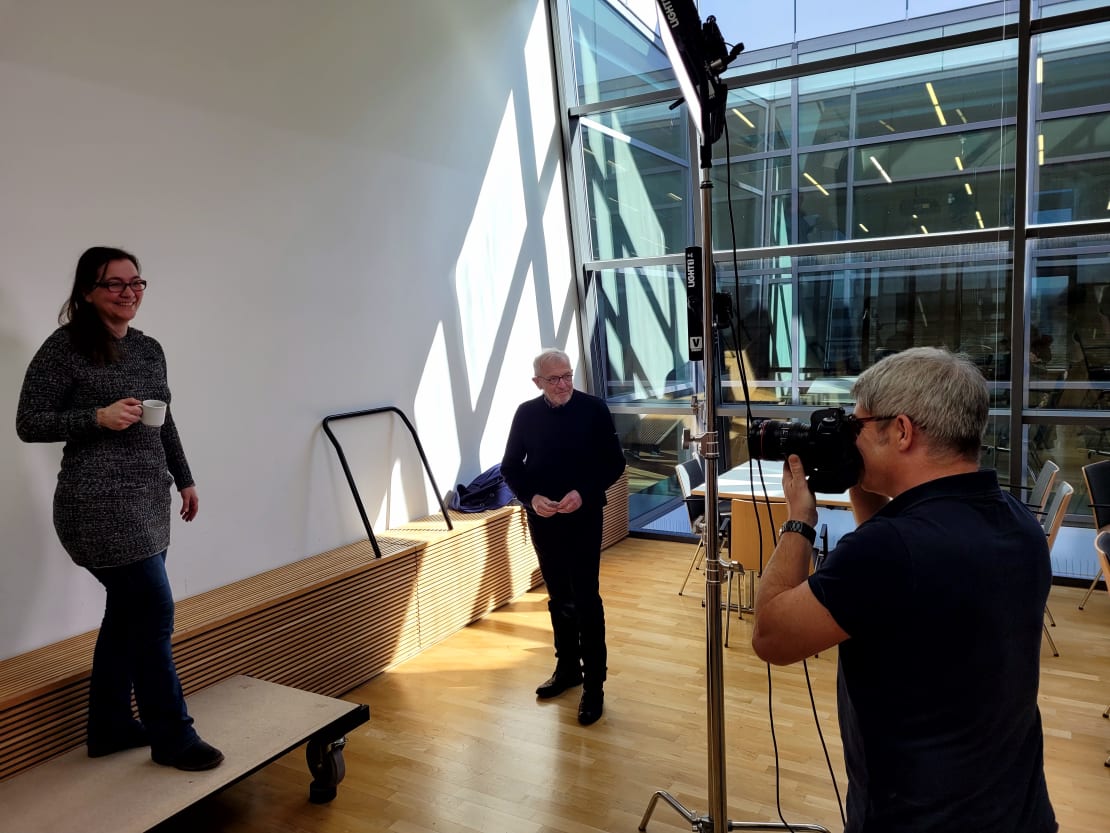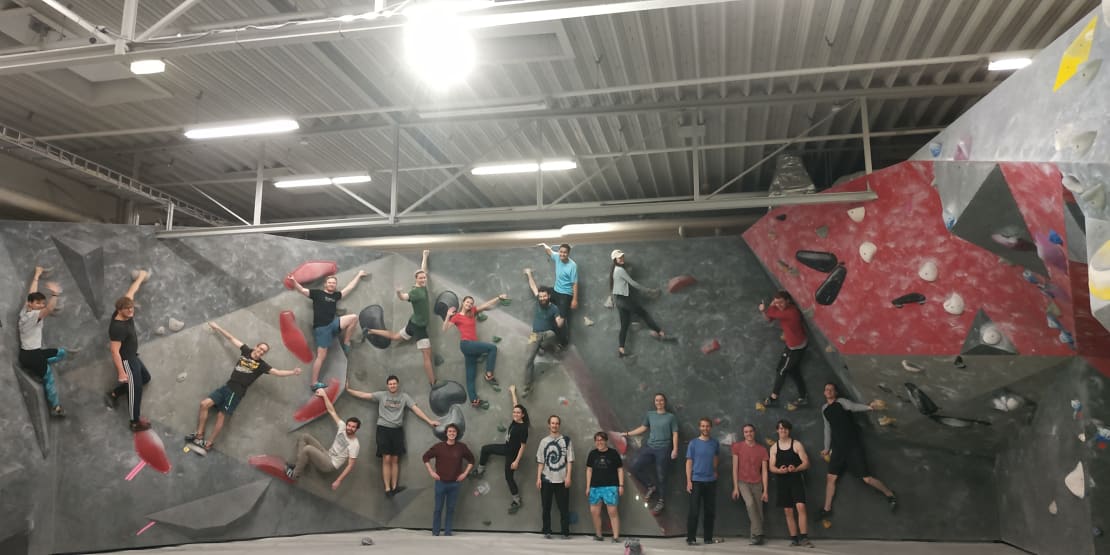
The spring IceCube Collaboration meeting wrapped up last week in Aachen, Germany, which was hosted by RWTH Aachen University. Over 200 members of the IceCube community attended the meeting either in person or virtually. For the second straight year since the pandemic began, the biannual collaboration meeting was held in person, with virtual offerings for those who could not attend. The meeting ran from March 12 through March 17.

Several pre-meetings were held, including discussions on IceCube-Gen2, IceAct, and the IceCube Upgrade. The meeting then kicked off with welcoming remarks from Christopher Wiebusch, professor at RWTH Aachen and the local meeting host. Later in the week, discussions, talks, and special events were held, covering topics that included updates on the IceCube Upgrade, IceCube-Gen2, the latest IceCube research results, software, calibration, and education and outreach.

The meeting also included special events featuring a public lecture on art and science synergy from artist Michael Hoch and an IceCube chamber music display from Tim Otto Roth. Hoch took photos of attendees for his upcoming IceCube video display project that will be showcased at the University of Wisconsin–Madison. Other special events included a speed networking session, an early career scientist career panel, a women and gender minorities workshop, and an LGBTQ+ allies lunch.
On day four of the meeting, the results of the tenth edition of the IceCube Impact Awards were announced at the conference dinner. The IceCube Impact Awards, established in 2018, recognize broad and significant contributions to IceCube that are normally not acknowledged through its scientific publications. Recipients were chosen based on nominations from IceCube collaborators.
During the ceremony, IceCube spokesperson Ignacio Taboada gave each recipient a certificate and mug to commemorate their achievements. The 2023 awardees are Cristina Lagunas Gualda (Deutsches Elektronen-Synchrotron); Manuel Silva (University of Wisconsin–Madison); Jessie Thwaites (University of Wisconsin–Madison); Tania Kozynets and Tom Stuttard (Niels Bohr Institute), recipients of the Group Impact Award; and Erik Blaufuss (University of Maryland), recipient of the IceCube Legacy Impact Award.

Outside of the meeting, collaborators had plenty of opportunities for fun and community building, including board game nights, Aachen city and cathedral tours, and rock climbing.
“The meeting went very smoothly,” says RWTH Aachen PhD student Lasse Halve, who was also a member of the local organizing committee. “I am very happy that we could welcome so many people in Aachen and provide a broad, scientific, and social program.”
The fall 2023 collaboration meeting will take place in Grand Rapids, Michigan, USA.